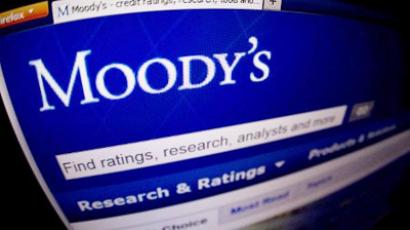Debt deals and downgrades: Fitch sours Greek bondholder deal
Financial ratings agency Fitch hit Greece with another downgrade just as eurozone leaders thought a solution to the crisis had been found. The news underscores the deepening Greek recession which is even worse than originally thought.
The decision to downgrade Greece’s long-term foreign and local currency Issuer Default Ratings (IDRs) from C to Restricted Default (RD) was prompted by news that “the exchange of Greek government bonds will proceed,” Fitch announced in a state.“The downgrade to 'RD' reflects Fitch's previous commentary that the exchange would constitute a sovereign default event under the agency's distressed debt exchange (DDE) rating criteria, and follows the downgrade of Greece to 'C' from 'CCC' on 22 February. Greece's short-term foreign currency IDR remains unchanged at 'C'”, the statement read.The second Fitch downgrade constitutes the fourth such credit-rating assault Greece has suffered in recent times.Last week, the financial rating agency Moody’s downgraded Greece’s rating from Ca to C following a debt restructuring deal with private creditors.The same week, Standard & Poor's cut Greece's long-term ratings to “selective default” after Athens initially announced the bond swap plan.The Fitch downgrade stands in stark contrast to a debt deal which Germany’s finance ministry has called a “historic chance” for Greece. The debt swap deal envisions a majority of private creditors holding Greek debt to cancel half the money owed to them. The swap will effectively shave €100 billion from Greece’s €350 billion mountain of debt. A successful debt swap was seen as a key to securing a second bailout valued at €130 billion. President Nicolas Sarkozy expressed his optimism for the deal on Friday, saying “today the problem is solved. A page in the financial crisis is turning," Reuters cites him as saying.William Anderson, associate professor at Frostburg State University, believes there are many reasons to remain skeptical.“Just because Sarkozy claims that it isn’t a default, it means absolutely nothing. He’s a politician. Don’t believe him,” he told RT. “The markets are going to reflect the reality…They are going to make decisions based on what’s going to be best for the financial future. They are not looking at it politically.”European leaders, Anderson continued, are trying to put a political spin on the situation, which makes the problem even worse.“What you have in the end is, in fact, the taking of assets that are worthless, and you have a Central Bank pretending that these assets mean something, that these assets really are valuable, when in fact they are not,” he explained. “And then they try to monetize the whole thing and then pretend that they’ve solved the problem. They’ve solved nothing. They’ve actually made it worse, because they won’t admit what is going on.”Economic analyst Nick Skrekas told RT a more sober assessment was in order.“People are afraid to invest here because we [Greece] may return to the drachma sometime soon. That could mean a devastating devaluation and a loss of money. So we need some stability in the eurozone, we need less dithering from European Union leaders, and we ourselves here have to take some responsibility and put together a medium-term economic plan, so we know how to climb out of this. There is still, despite all of this, a 130 billion bailout package coming. And despite the haircut of close to 100 billion, there’s still a shortfall of seven billion. You don’t want to make that up with taxes,” Skrekas said.The debt deal and subsequent downgrade came amidst news that the Greece economy had contracted more rapidly than initially thought.While it had previously been projected that the Greek economy had shrunk by 5.5 per cent in 2011, information released by the state statistics agency Friday showed it had contracted by 6.9 per cent.














